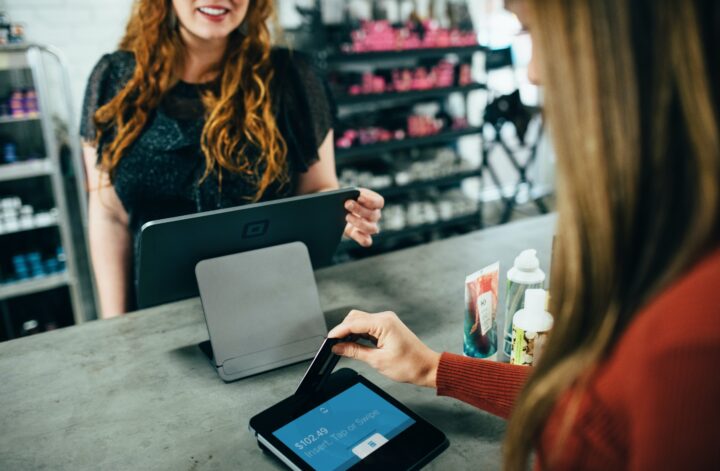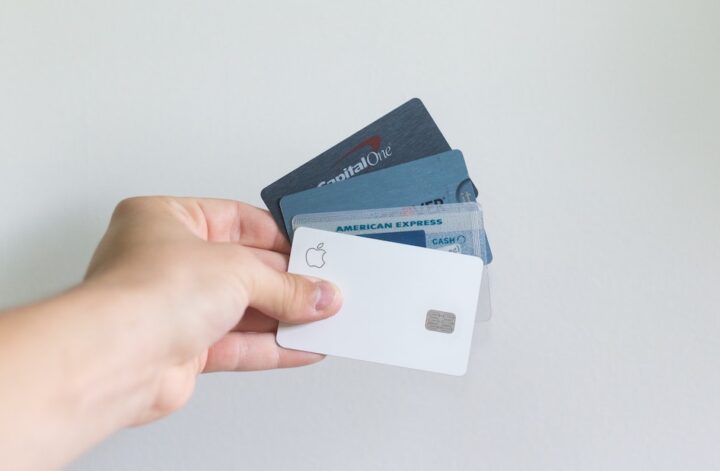Many people use cards to pay for their everyday purchases. If you prefer to use cards instead of cash, you may want to think about which card you use. While using a debit card may be convenient, it doesn’t offer the same benefits that a credit card has. Here are five reasons to use a credit card instead of a debit card for most purchases.
1. You can use a credit card to build credit
A good credit score can unlock better financial opportunities. If you have a low credit score or minimal credit, using a credit card could help you build your credit as long as you take the right actions.
When you use your credit card, make on-time payments, and keep your credit utilization (how much available credit you use) low, you could improve your score.
Using debit cards doesn’t impact your credit score. When you use a debit card, you’re using your own money from your checking account. Nothing is reported to the major credit bureaus since you’re not borrowing money and making payments on your debt.
2. You can earn credit card rewards
If you use a rewards credit card, you can earn rewards on your spending. If you typically pay with a card, this is an easy way to earn valuable rewards.
Most debit cards don’t earn rewards, and banks that offer cash back usually offer meager rates (we’re talking 1%), so you can earn more with the right credit card. If you’re using credit cards that don’t earn rewards, you’re missing out.
3. Credit cards have better fraud protection
Another reason to use a credit card instead of a debit card is because you get built-in fraud protection. Credit cards have better fraud protection than what you’ll get when using a debit card. Fraudulent purchases happen, so you want to know that you’ll be protected.
The Fair Credit Billing Act (FCBA) is a law that helps to protect consumers. The FCBA limits your liability for unauthorized credit card use to $50. However, most major credit card issuers offer zero liability protection – meaning if your card is used to make a fraudulent charge, you won’t be held financially responsible.
Debit cards are different. Debit card and ATM fraud fall under the Electronic Fund Transfer Act (EFTA). You can report an unauthorized transaction made with your debit card, but you need to act quickly. If you don’t, you may be financially responsible for unauthorized charges.
Here’s what you need to know:
- If you report fraud within two business days, your liability won’t exceed $50.
- If you report after two business days but before 60 days after your statement is provided, your liability could be up to $500.
- If you don’t report fraud within 60 business days after your bank statement is sent, you could be held responsible for all fraudulent charges with no maximum cap.
If you’re the victim of debit card theft or fraud, notify your bank ASAP.
Worrying about how your bank or financial institution might handle a fraudulent transaction isn’t worth the stress. For that reason, it’s in your best interest to use a credit card instead of a debit card for regular everyday purchases.
4. You may get other perks
Many credit cards offer added benefits that are worthwhile. This may include purchase projections, extended warranty benefits, trip interruption insurance, or trip cancellation insurance.
These benefits make your credit card more valuable, and you won’t find these attractive perks being offered when you get a debit card.
5. Your credit card isn’t linked to your bank account
When you use a debit card as your payment method, the money is pulled directly out of your bank account, so your bank account balance is lowered when you use your card.
This is a crucial detail to remember when using a debit card for a hold. If a company puts a hold on your debit card (like a hotel might do to cover incidental fees at check-in), your account balance will be lowered until the hold is removed.
When you use a credit card, you won’t have this issue. When a hold is made, it will lower your total available credit until it clears. But it won’t put the money in your bank account at risk.
Now you know why you should use use a credit card instead of a debit card
Debit cards may seem similar to credit cards, but they’re very different. The next time you need to make a purchase, consider using a credit card.
However, you should always use credit cards with care. Follow these suggestions:
- Review credit card terms before getting a card to know what to expect.
- Only charge what you can afford to avoid accumulating credit card debt.
- Always pay your credit card bill on time.
- Pay more than the minimum amount due (your best bet is to pay the entire balance in full to avoid expensive interest charges).
- Avoid using a high percentage of available credit. Credit utilization, or how much available credit you use, is a factor that impacts your credit score. It’s best to use less of your available credit.
If you want to learn more about credit cards and their benefits, check out our other rewards credit card articles.
While there’s no one best credit card for all, you can find the right card for your needs.



